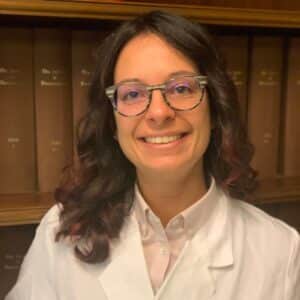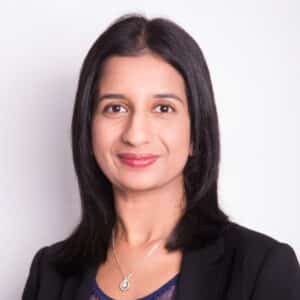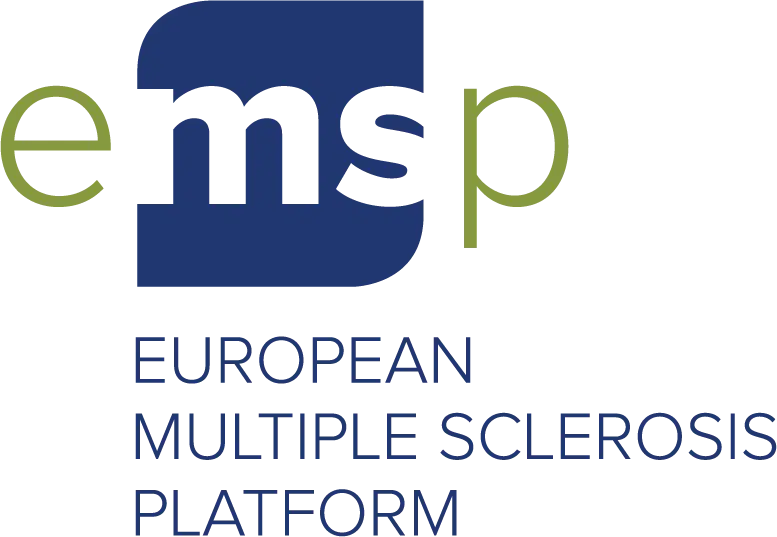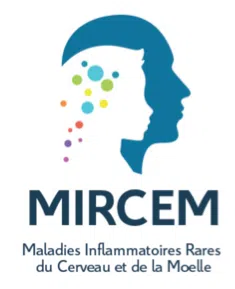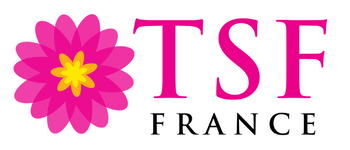
Les langues répertoriées ci-dessous sont des langues parlées en plus de l’anglais
Michael Levy, MD, PhD, is a neurologist with 11 years of clinical and research expertise in rare neuroimmunological disorders. In the summer of 2019, Dr. Levy was recruited to join the Neuroimmunology and Neuroinfectious Disease Division of the Massachusetts General Hospital where he directs the NMO Clinic and Research Laboratory. Dr. Levy is also an associate professor at Harvard Medical School. His mission is to develop new and improved therapies for patients with rare autoimmune disorders of the central nervous system.
Prior to his arrival in Boston, Dr. Levy was on the faculty at Johns Hopkins University from 2009 until 2019. He first went to Hopkins after completing the MD/PhD program at Baylor College of Medicine (Houston, TX) for internship in the Osler Medicine program in 2004. He then completed his residency in the Johns Hopkins neurology program in 2005 and a fellowship in neuroimmunology in 2008.
Clinically, Dr. Levy manages over 425 patients with neuromyelitis optica (NMO), 80 with idiopathic transverse myelitis (TM), and 30 with MOG antibody disease. In addition to weekly clinics, Dr. Levy is the principal investigator on three sponsored clinical trials for NMO, including the PREVENT study of eculizumab (Alexion), NMOmentum study of inebilizumab (Viela Bio) and Sakura Sky study of satralizumab (Chugai/Roche). Dr. Levy has also conducted three investigator-initiated trials for acute treatment of NMO relapses. In the lab, Dr. Levy’s research focuses on the development of animal models of NMO with the goal of tolerization as a sustainable long-term treatment.
Dr. Levy has more than 125 peer-reviewed research articles, reviews and editorials, and 3 patents covering NMO tolerization therapy, TM diagnostics and stem cell regeneration approaches. Dr. Levy is currently the chief editor at Multiple Sclerosis and Related Disorders and sits on the editorial board for Journal of Neurological Diseases, and on scientific advisory boards for Alexion, MedImmune, Chugai, Shire and Quest Diagnostics.


Orhan Aktas received his undergraduate training at the universities of Bochum and Strasbourg. After graduation as MD in 1999, he served a neuroimmunology fellowship at the Charité, Humboldt-University of Berlin, and at the Hadassah Medical School, Hebrew University of Jerusalem.
He started his career in Neurology at the Charité and was appointed Assistant Professor at the Department of Neurology, Heinrich-Heine University, Düsseldorf in 2008. Since 2013, he is Associate Professor for Molecular Neurology and in charge of the Düsseldorf Multiple Sclerosis Center at the Department of Neurology, Heinrich-Heine University.
Professor Aktas’s clinical and research interests are in the field of basic and clinical neuroimmunology, in particular Multiple Sclerosis (MS) as well as Neuromyelitis Optica Spectrum disorders (NMOSD) and further antibody-mediated variants, particularly MOG-IgGassociated disease (MOGAD).
He has authored or co-authored a large series of primary research articles in peer-reviewed journals such as Nature Medicine, Nature Cell Biology, Cell, Neuron, JAMA Neurology, Neurology, Annals of Neurology, Lancet, Lancet Neurology and contributed to review articles and editorials in Trends in Neurosciences, Lancet Neurology, Journal of Neurology, and Annals of Neurology.
He has been involved as a principal investigator in international multicentre therapeutic trials in Multiple Sclerosis as well as NMOSD and has designed investigator-initiated trials in translational neuroimmunology. He is also a member of the International MS Visual System Consortium (IMSVISUAL), member of the International Clinical Consortium of The Guthy-Jackson Charitable Foundation for NMOSD research, as well as co-founder and co-coordinator of the German Neuromyelitis optica Study Group (NEMOS, www.nemos-net.de).


Salman Aljarallah, MBBS is an assistant professor at King Saud University in Saudi Arabia. He is a neurologist specializing in neuroimmunological disorders.Dr. Aljarallah completed his neurology training at McGill University in Montreal, Canada, before completing a fellowship in neuroimmunology & neurological infections at Johns Hopkins University.
He is interested in MS and understanding MS in the broader Gulf region, in addition to interest in NMOSD and MOG-associated disorders. He participated in multiple phase 3 clinical trials locally and internationally and worked on Stiff Person Syndrome and other disorders. He is the author of Saudi Guidelines for the Management of Neuromyelitis Optica.


Jefferson Becker, MD, M.Sc., PhD, is a consultant neurologist and professor of neurology at the Pontifical Catholic University of Rio Grande do Sul (PUCRS), in Porto Alegre, Brazil. His work is focused mainly on the diagnosis and treatment of neuroimmunological diseases.
He graduated in medicine from the Federal University of Rio Grande do Sul, Brazil, in 1994 and completed his residency training in neurology at PUCRS. He subsequently undertook a fellowship in neurology at the National Hospital for Neurology and Neurosurgery in London, UK, before completing an M.Sc. and PhD in neurosciences at PUCRS.
He is currently a member of the Board of Directors of the Latin American Committee for Treatment and Research in Multiple Sclerosis (LACTRIMS) and the Brazilian Committee for Treatment and Research in Multiple Sclerosis (BCTRIMS). Moreover, he is a member of the Scientific Board of the European Charcot Foundation and of the Scientific Committee in Neuroimmunology of the Brazilian Academy of Neurology. He is also the former president of the Brazilian Committee for Treatment and Research in Multiple Sclerosis (BCTRIMS).
His main research interests focus on multiple sclerosis, neuromyelitis optica, MOGAD, and other autoimmune diseases of the nervous system.
Pr. Fabienne Brilot obtained her PhD in Belgium and at the JD Gladstone Institutes, UCSF, USA. She then became postdoctoral fellow under the mentorship of Professor Christian Munz (University of Zurich, Switzerland) at the Browne Center for Immunology and Immune Diseases headed by late Professor Ralph Steinman (Nobel Prize for Medicine 2011) at the Rockefeller University, USA. She was recruited at the Children’s Hospital at Westmead in Sydney in 2007 where she started the Brain Autoimmunity Group.
Fabienne is Principal Research Fellow at the University of Sydney, and her research focuses on neuroimmunological brain disorders such as demyelinating disorders and movement and psychiatric disorders. Her group aims to discover biomarkers and explores the autoimmune response in patients to improve their diagnosis and treatment. With many collaborations with paediatric and adult neurologists, she has contributed to the characterization of MOG antibodies and the diagnosis of MOGAD.
Fabienne is a member of the International Society of Neuroimmunology (ISNI) International Advisory board. She is the Secretary of the International Women in Multiple Sclerosis (iWiMS) network. She also is the President of Neuroimmunology Australia, and is the co-convenor of the 3rd Asia-Pacific School of Neuroimmunology (APSNI) in 2023.
Dr. Clardy is Associate Professor of Neurology with tenure at the University of Utah in the Division of Neuroimmunology within the Department of Neurology and Staff Neurologist at the Salt Lake City VA Hospital. Prior to joining the University of Utah team Dr. Clardy completed a fellowship in Autoimmune Neurology at the Mayo Clinic. Her training and experience focus on the evaluation and management of autoimmune and paraneoplastic disorders of the nervous system.
Her main clinical interest is devoted to patients affected by antibody-mediated disorders of the nervous system, as well as demyelinating CNS disease, including neuromyelitis optica spectrum disorder (NMOSD) and MOG-antibody disease, autoimmune neurologic complications of immune deficiency, and central nervous system complications of rheumatologic disease.
She established the Autoimmune Neurology Clinic at the University of Utah, one of the few clinics in the United States focused on serving this group of patients. Dr. Clardy is also the Director of the Autoimmune Neurology Fellowship program.
Alvaro Cobo-Calvo, MD, PhD is a neurologist working at CEMCAT, Barcelona, Spain, where he is focused on the diagnosis and treatment of patients with NMOSD-like diseases and MOGAD.
In 2012, Dr Cobo-Calvo finished his neurology training program at Bellvitge University Hospital, Barcelona, Spain. In 2015, he completed his international PhD program at Barcelona University, Spain and Université Claude Bernard I de Lyon, France, focused on idiopathic myelitis and MOG antibodies. During this period, he also completed a four year-master in health epidemiology and one master degree in neuroimmunology.
In 2017, he completed a two year-post-doctoral program at the Multiple Sclerosis Center of Lyon (Hôpital Pierre Wertheimer), France. Subsequently he got a two- year contract as a Clinical neurologist at the Referral French Centre of rare demyelinating diseases in Lyon, France (2018-2019) where he deepened his knowledge in the basic and clinical field of NMOSD, mainly by studying clinical and prognostic factors of patients with aquaporin-4 and myelin oligodendrocyte glycoprotein (MOG) antibodies.
Since January 2020, he has been working at the Multiple Sclerosis Centre of Catalonia (Cemcat), Barcelona, Spain. His research is mainly focused on prognostic biomarkers of NMOSD and MOGAD.
José Flores is currently a member of the Board of Directors at National Academy of Medicine and has served as the Chief of the Neurology department at the National Institute of Neurology and Neurosurgery (INNN) in México City for the last 15 years. Dr. Flores is also part of the Clinical Laboratory of Neurodegenerative Diseases. He is a senior consultant in demyelinating diseases and CNS autoimmune disorders at the same institute.
He graduated in Internal Medicine and Neurology of the National Autonomous University of Mexico and is a Professor of Neurology and Neuroimmunology at INNN in Mexico City. He has a high speciality degree in multiple sclerosis and demyelinating diseases by National Autonomous University of Mexico and National Institute of Neurology and Neurosurgery, is a senior researcher in Medical Sciences from the National Institutes of Health of Mexico and Member of the National Researchers System of the National Council of Science and Technology (CONACYT) of Mexico.
He is a member of editorial boards of national journals and a is co-coordinator for the Atlas of Multiple Sclerosis (MS) of Multiple Sclerosis International Federation (MSIF). Dr Flores is a core member of the Board for both the National Council of Neurology and MEXCTRIMS.
In 2017, Dr Flores received the Manuel Velasco-Suárez Award for his contributions to Mexican neurology to better understand NMO through genetics.


Dr. Kazuo Fujihara is a Professor at the Department of Multiple Sclerosis Therapeutics at Fukushima Medical University School of Medicine and the director of the Multiple Sclerosis & Neuromyelitis Optica Center at Southern TOHOKU Research Institute for Neuroscience (STRINS) in Koriyama, Japan.
Dr. Fujihara is a neurologist and has mainly worked in the field of multiple sclerosis (MS), neuromyelitis optica spectrum disorders (NMOSD), MOG antibody-associated disease (MOGAD) and related neuroimmunological disorders.
He is a member of:
Since 2013, he has served on the Executive Committee of the International Medical and Scientific Board of The Multiple Sclerosis International Federation (MSIF) and and the Board of European Charcot Foundation (ECF). He is an inaugural member and President (2018~) of Pan-Asian Committee for Treatment and Research in Multiple Sclerosis (PACTRIMS), and Immediate Past President (2019~2022) of the Japanese Society for Neuroimmunology (JSNI).
Dr. Joachim Havla is a neurologist and senior physician at the Institute of Clinical Neuroimmunology at the LMU Hospital in Munich, Germany. The Institute is a founding member of the well-known German NMOSD study group “NEMOS” and thus has been substantially involved in the scientific developments towards better care for our patients with NMOSD and MOG-AD over the past years.
He is (co-)principal investigator in numerous phase III therapy studies. In addition, he leads a junior research group (@NeuroVisionLab) and is active in both teaching and mentoring programs at the university. Clinically, he has been dedicated to the care of neuroimmunological patients for many years. He also scientifically and medically advises foundations in the field of neuroimmunological disorders and pursues the goal of patient empowerment.
Scientifically, his NeuroVisionLab is focused on the evaluation of new biomarkers for the quantification of retinal neuro-axonal degeneration in patients with inflammatory and degenerative diseases of the central nervous system (CNS) and is involved in international consortia such as “IMSVISUAL” and “CROCTINO”.
Sarosh Irani is a clinician scientist, Professor of Autoimmune Neurology and consultant neurologist, at the University of Oxford. His group aims to improve treatments and outcomes for patients with autoantibody-mediated diseases of the nervous system and understand the biology behind these rapidly expanding conditions.
Sarosh undertook clinical training in Oxford and London, with a DPhil in Oxford and a Fulbright postdoctoral position in UCSF. He has made several discoveries within the translational neuroimmunology space. These have spanned basic clinical observations, including description and refinement of clinical phenotypes associated with autoantibodies, detection of pathogenic autoantibodies, genetic findings and B cell immunobiology, all in the field of autoantibody-mediated diseases.
Clinically, he runs the UK’s major clinic for autoantibody related CNS diseases. He has recognized faciobrachial dystonic seizures in association with LGI1-antibodies, the importance of early immunotherapy in these patients, and distinctive psychopathological features associated with NMDAR-antibody encephalitis. In the laboratory, he has led the discovery of LGI1- and CASPR2-antibodies, their associated HLA associations and the roles of B cells in the pathogenesis of autoimmune forms of encephalitis and neuromyelitis optica.
He was awarded the Graham-Bull Prize in Clinical Science / Goulstonian Lectureship, from the Royal College of Physicians, and awards including the NIHR BRC Senior Clinical Fellowship, International Society of Neuroimmunology Clinical Science Prize and both Wellcome Intermediate and MRC Senior Clinical Fellowships.
Pr. Romain Marignier is a neurologist (MD), professor at the Neurological Hospital of Lyon, France. His areas of expertise include neuro-inflammatory disorders of the central nervous system with a specific interest in rare disorders, namely neuromyelitis optica spectrum disorder (NMOSD) and MOG-Ab associated disease (MOGAD).
Pr Marignier is the coordinator of the French nationwide NMOSD and MOG-AD cohorts and biobanks, NOMADMUS, set up in 2010 that includes all the French clinical experts in neuro-inflammatory disorders. Through NOMADMUS, Pr Marignier provided breakthrough insights in the topic regarding clinical characterization, management, and treatment of NMOSD and MOG-AD, supported by major publications in high profile journals.
Since 2017, Pr Marignier has been the head of the French referral center for rare inflammatory disorder of the central nervous system (MIRCEM), providing expertise on diagnosis and management of NMOSD and MOG-AD for both patients and clinicians.
Pr. Marignier earned a PhD on basic neurosciences in 2011 at Claude Bernard University Lyon 1 on the role of auto-antibodies in NMOSD and related diseases. He actually performs his research at INSERM unit 1028 in Lyon Neuroscience Research Centre (CRNL) on: 1. The pathophysiology of auto antibody- mediated disorders of the central nervous system with in vitro, ex vivo and animal models; 2. The development of new strategies to optimize the detection of auto-antibodies (anti-AQP4, anti-MOG, anti-GFAP) for diagnosis and prognosis purposes (immunohistochemistry, flow cytometry).
Sara Mariotto (MD, PhD) is a neurologist who works at the AOUI Verona, Italy where she is responsible for the diagnosis of NMOSD, MOGAD and autoimmune encephalitis and is the referring clinical consultant for neuroimmunological disorders.
In 2010, Dr. Mariotto graduated in medicine and surgery and specialized in neurology in 2016 at the University of Verona in Italy. In 2020, she completed a 3-year PhD at the Department of Neurosciences, Biomedicine, and Movement Sciences, University of Verona and also obtained the certificate of Doctor Europaeus. After her PhD, she was awarded an 8-month scholarship on the study of diagnostic and prognostic tests in antibody-mediated encephalitis and neuromyelitis optica.
Her principal field of interest is the study of autoimmune/inflammatory encephalitis, encephalomyelitis, NMOSD, MOGAD, and peripheral inflammatory neuropathies. In relation to these topics, she studied antibody-mediated CNS disorders during her fellowship at the Clinical Department of Neurology, Medical University of Innsbruck and at the Institute of Neurology, Medical University of Vienna.
She actively participates in clinical and research activities, collaborative study designs, and discussions about challenging national cases with CNS inflammatory and autoimmune conditions.
Recently, her research has focused on increasing the diagnostic sensitivity for NMOSD and MOGAD and the analysis of novel biomarkers of disease activity.
Dr. Mariotto has more than 100 peer-reviewed research articles/reviews, a member of the editorial boards of international journals and the associate editor of Immunologic Research, and is part of the International Clinical Consortium for the study of NMOSD, and of the Neuroimmunology Board of the European Academy of Neurology.


Dr. Matiello completed his Doctorate of Medicine at the Federal University of Rio de Janeiro, Brazil, where he also completed his initial residency training in Neurology and Internal Medicine. He joined the Mayo Clinic in 2006, completed two research fellowships in genetics and molecular mechanisms of neuromyelitis optica (Brian Weinshenker’s lab), and became a Research Associate of the Department of Neurology. At the Mayo Clinic Graduate School of Medicine he obtained his Master of Science in Clinical and Translational Research. In 2012, he went to Yale University, where he spent one year on residency training and then completed three years of neurology residency at Mass General Hospital and Brigham and Women’s hospital. He is now a member of the Mass General Hospital and of the Harvard Medical School.
Dr. Matiello is an expert in neuromyelitis optica, multiple sclerosis and other autoimmune diseases of the nervous system. Dr. Matiello has authored over 30 book chapters and peer-reviewed manuscripts, many in high-impact journals. Dr. Matiello is a fellow for the Multiple Sclerosis International Foundation and the of National Multiple Sclerosis Society, and is a member of the American Academy of Neurology, the American Society for Apheresis, the Mayo Clinic Alumni Association and of Scientific consortium of the Guthy-Jackson Charitable Foundation for NMO.
Dr. Matiello is a world-renowned educator in central nervous system diseases, as well as in therapeutic plasma exchange. He has presented his work in 19 countries. He has been awarded with the prestigious Mayo Clinic Neurology Research Award (2010), the European Committee for the Treatment and Research in Multiple Sclerosis best research award (Lyon, France 2012), Yale Hospital Outstanding House Staff Physician Award (2013) and as the Harvard Neurology Medical Education Scholar (2015). Dr. Matiello speaks four languages and has created the first NMO clinic at Mass General.
Professor Jacqueline Palace is a consultant neurologist in Oxford and Professor in the Nuffield Department of Clinical Neurosciences, Oxford University. She runs a national service for neuromyelitis optica service (NMO) and congenital myasthenic syndromes (CMS). Her clinical and research interests cover NMOSD, MOGAD, MS, and myasthenia gravis as well CMS and include clinical treatment trials, immunological studies, pathology, biomarkers, genetics and imaging studies. She has been a UK lead for the National Risk Sharing Scheme which assessed the long-term effectiveness for disease modifying agents in multiple sclerosis, is a board member for the European Charcot Foundation, and on the steering committee for MAGNIMS.


Professor Lekha Pandit is the Director of the Centre for Advanced Neurological Research and Professor in the Department of Neurology at KS Hegde Medical Academy, Nitte University located in Mangalore, India.
She runs the demyelinating disease clinic and the Mangalore Demyelinating Disease Registry (MANDDIR) at Nitte University. Her clinical and research interests include observational studies and treatment effects in patients with MS, MOGAD, NMOSD and seronegative disease, diagnostic assays and biomarkers, genetic and environmental associations.
Pr. Pandit has a special interest in supporting access to care in resource-poor settings and is associated with the MS International Federation’s (MSIF) access to care efforts. She is the current secretary of PACTRIMS and has been closely associated with its educational and scientific committees for more than a decade.


Friedemann Paul is the group leader of the Clinical Neuroimmunology department of the NeuroCure Clinical Research Center at the Charité. He finished his medical education in Berlin and has been a board certified Neurologist since 2003. Friedemann Paul is a senior Neurologist in the Charité since 2004 until date.
Since 2010, he has been leading the Neuroimmunology outpatients’ clinic in Buch, a suburb of Berlin. From 2011 to 2016 Paul was Professor (W2) of Neurology at the NeuroCure Clinical Research Center of Charité. In 2016 he joined as a tenured Professor (W2) of Clinical and Experimental Neuroimmunology at Charité.
In 2018 he became a Scientific Director (acting) of the Experimental and Clinical Research Center (ECRC). His research focuses on Neuromyelitis optica (Devic’s Syndrome), Neurodegeneration and Neuroprotection in Multiple Sclerosis (MS), Experimental Autoimmune Encephalomyelitis (EAE), Neurological Complications of Chronic Inflammatory Bowel Diseases, Diagnostic Tools in Neuro‐immunology (Imaging (OCT, MRI, Ultrasound), Laboratory, and CSF Biomarkers) as well as the association of structural damage and dysfunction of the visual system in autoimmune disorders of the Central Nervous System.
He has also been involved in a number of scientific activities including MS‐ Subcommittee of the European Neurological Society (ENS) (since 2008), Member, Editorial Board, EPMA Journal (since 2009), Associate Editor “Neurology: Neuroimmunology and Neuroinflammation” (since 2015) and Medical Consultant for EU‐ Announcements for Research Programmes on Rare Diseases (E‐RARE) (since 2016).
A/Professor Ramanathan Ramanathan is an adult neurologist and clinician-scientist, with subspecialty expertise in autoimmune neurological disorders. A/Professor Ramanathan is a staff specialist neurologist at Concord Hospital in Sydney, where she diagnoses and treats patients with suspected autoimmune neurological conditions.
After subspecializing in neurology and being awarded her FRACP, she completed her PhD in neuroimmunology at the University of Sydney, and a post-doctoral fellowship at the University of Oxford. A/Professor Ramanathan has received 14 continuous years of NHMRC fellowship funding, and is currently an NHMRC Investigator Fellow. She heads the Translational Neuroimmunology Group at the Faculty of Medicine and Health, University of Sydney, and leads a translational fundamental science and clinical research program.
Her research program is focused on understanding underlying disease pathogenesis to guide therapeutic approaches, and improving the diagnosis and treatment of autoimmune neurological disorders including demyelination and encephalitis.
In 2014, A/Professor Ramanathan established the Australasian MOGAD Study Group, and has since been the lead investigator of this consortium which has now expanded to include 150 clinicians from over 45 centres, evaluating over 700 children and adults with MOGAD. Her work has facilitated the adoption of laboratory biomarkers into routine clinical use for diagnosis, and the development of diagnostic criteria and therapeutic recommendations for some of these conditions in order to reverse disability and improve outcomes.
At the 2022 NSW Premier’s Prizes for Science & Engineering announced on 1 Nov, Dr Sudarshini Ramanathan was named the NSW Early Career Researcher of the Year (Biological Sciences).


Sara Salama, MD, PhD, is a neurologist with 9 years of clinical and research expertise in neuroimmunological disorders. In 2014, Dr. Salama became a working member of Alexandria Neuroimmunology Unit, Egypt. In 2018, she trained for one year at Johns Hopkins NMOSD clinic. She authored many publications on NMOSD and MOGAD. Her PhD research was directed towards understanding characteristics of NMOSD in Egypt.
Prior to her career in neuroimmunology, Dr. Salama trained in general neurology as a resident at Alexandria University hospitals from 2010-2014 where she completed her master’s degree. She became a faculty member at the Department of Neurology, Alexandria University in 2014. She obtained her PhD/ MD degree and became a lecturer of neurology/ neuroimmunology in 2019. She also received her MS specialty certification exam in the same year.
Dr Salama has more than 20 peer-reviewed original research/reviews/editorials. Her work is mainly focused on neuroimmunology and particularly NMOSD.
In 2021, Dr Salama was awarded an MSIF-ARSEP McDonald Fellowship. She is currently an honorary research fellow at university college London (UCL), UK, as part of an IMS Visual multicenter project.
Clinically Dr Salama cares for more than 100 Egyptian patients of different neuroimmunological diagnoses, she continues to care for patients face to face whenever possible as well as virtually. Her hope for the future is to epidemiologically assess the burden of NMOSD in Egypt and for those patients to gain access to approved therapies.
Patrick “Paddy” Waters is a Biochemist and co-Director of the Oxford Autoimmune Neurology Diagnostic Laboratory based at the University of Oxford. He has 15 years experience in the development and evaluation of neurologic diagnostic tests. He promotes the use of native protein to detect target specific antibodies. He was involved in the discovery of the glycine receptor, LGI1, CASPR2, and the GABA-A receptor as targets of antibodies associated with CNS diseases.
He was a panel member for the development of criteria for NMOSD and MOGAD and an author on the clinical criteria for the diagnosis of autoimmune encephalitis. He is on the editorial boards of the Journal of Clinical Neurology and Neurology, Neuroimmunology & Neuroinflammation, an author of more than 200 publications, holds patents and receives royalties for antibody detection and has been a member of the Clarivate Analytics list for researchers for the last six years.














